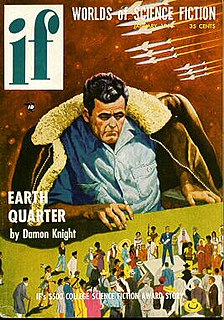A Quote by Francisco Goldman
The writing that most interests me isn't about narcos or sicarios or police or whatever. It's about the victims and the survivors, and about the suffering and trauma that so many in Mexico and Central America endure, and that is all around us whether we notice it or not.
Related Quotes
It's the first thing liberals notice about people is what group are you in! "What group do I put you in? Are you a woman? Are you lesbian? Are you straight? Are you Native American? Are you African-American? Are you a mix? What are you?" That's how they see people, because that then identifies the victim status they hold. Victims of what? Victims of America! All these people are victims of America, "the white, patriarchal majority." They're all victims of America, as the left sees them.
I feel a lot of sympathy for the young women I've written about, including Younger Janice. I think that all of them (me in Girlbomb, Samantha in Have You Found Her, and Elizabeth in I, Liar) had some early family trauma that contributed to their dysfunctional methods of dealing with the world, but I wouldn't call them/myself victims - survivors, maybe, but not victims. Nor do I think of them/myself as con artists.
I believe that at the beginning of the life of every artist there is some kind of trauma. We have a problem and all of our life we try to speak about this problem. My trauma was historical. When I was three or four, all the friends of my parents were survivors of the Holocaust; they spoke a lot about that. My father was hiding during the war, it was something totally present when I was a boy. It is sure that it has made me.
The thing that always interests me from a storytelling point of view is how that moment of trauma, whatever the trauma is, even divorce, your dog dies, whatever it is, the consequence, in terms of people's emotional lives and the way it resonates behaviorally for a long time is really the stuff that interests me.
The thing that always interests me from a storytelling point of view is how that moment of trauma, whatever the trauma is, even divorce, your dog dies, whatever it is, the consequence, in terms of people's emotional lives and the way it resonates behaviorally for a long time, is really the stuff that interests me.
So many things beat upon us in a lifetime that simply enduring may seem almost beyond us… But the test a loving God has set before us is not to see if we can endure difficulty. It is to see if we can endure it well. We pass the test by showing that we remembered Him and the commandments He gave us. And to endure well is to keep those commandments whatever the opposition, whatever the temptation, and whatever the tumult around us.
It is true that all of us are the beneficiaries of crimes committed by our ancestors, and it is true that nothing can be done about that now because the victims are dead and the survivors are innocent. These are good reasons for keeping our mouths shut about the past: but tell me, what are our reasons for silence about atrocities still to come?
I was pregnant with my youngest child at the time, writing about mass death while I'm growing this precious little life inside me. Here I am, worried about everything I eat and drink and whether I walk past a smoker, and meanwhile I'm writing about an event where almost three hundred children were slaughtered. Most were never identified and are buried in a mass grave in Oakland. It was surreal. But it felt good to give Jim Jones's victims a voice, especially ordinary church members.
Did you ever notice how many survivors they have? Did you ever notice that? Everybody - every time you turn around, 15,000 survivors meet here, 400 survivors convention there. I mean, did you ever notice? Nazis sure were inefficient, weren't they? Boy, boy, boy! ...You almost have no survivors that ever say they saw a gas chamber or saw the workings of a gas chamber...they'll say these preposterous stories that anybody can check out to be a lie, an absolute lie.
Latinos are not monochromatic. You know, they trace their ancestry back to South America, to Central America, to Mexico, like in my family, and the Caribbean. And it's - we're a very diverse group. And we care about a lot more than just immigration, though we're passionate about having sensible immigration policies that don't go after our families.
American cops didn't create that atmosphere, they're the ones though who have to live with it on a daily basis. These are generalisations; you can't make generalisations about hundreds of thousands of people. The New York Police Department, for instance, has 38,000 police officers in it. But most cops, when I talk to them, desperately care about the victims of gun violence. They see it, they experience it.






































